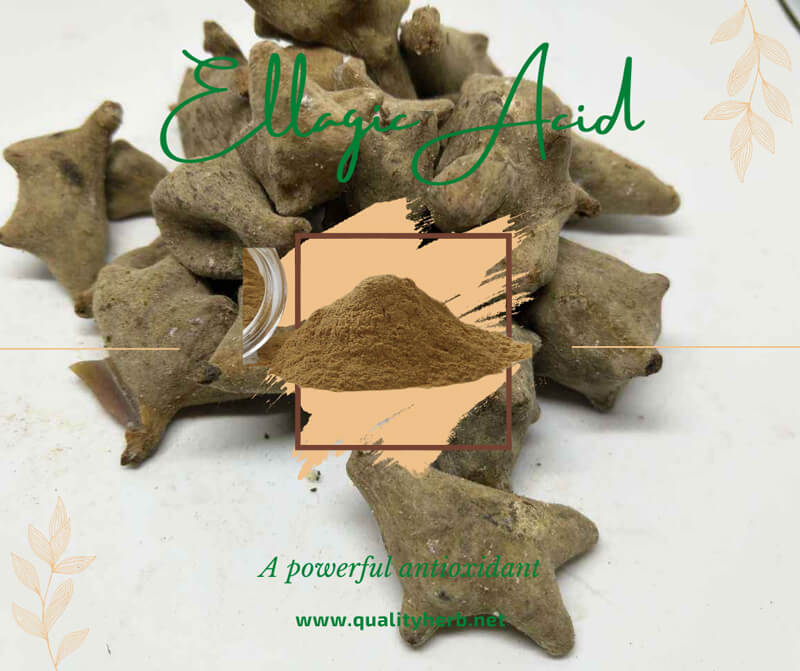The Cosmetic Properties of Ellagic Acid
A powerful antioxidant, anti-dark spot, anti-wrinkle, ellagic acid is a valued component in cosmetics. It is found at the heart of many fruits, and it is used in radiance treatments. Its many properties make ellagic acid an ingredient of choice in cosmetics.
Ellagic acid, a powerful polyphenol
The ellagic acid (EA) is a powerful polyphenol antioxidant. It is found in many fruits, vegetables, and nuts including raspberries, strawberries, cranberries, pomegranate. This active ingredient is often used to fight against pigmentation problems (pregnancy mask, sun spots, post-inflammatory pigmentations). It is also a great natural antioxidant that fights against free radicals and an anti-aging agent that boosts collagen production.
The cosmetic properties of ellagic acid
Ellagic acid is an ingredient of choice with multiple properties. It helps revive radiance while fighting against radical attacks, thus slowing the appearance of the first signs of aging.
An anti-aging action: With age, the fibroblasts which synthesize collagen and elastin (skin support tissue) decrease with the consequence of a loss of tone and elasticity of the dermis. On the surface, the wrinkles deepen. EA activates collagen synthesis with a very interesting direct mechanism in the dermis. EA acts in the dermis by blocking or slowing down the degradation of fibroblasts with repercussions on slowing down skin aging.
Anti-free radical action: EA protects against oxidative stress (responsible for aging) by trapping free radicals. It thus limits premature aging.
Action on the vascularization: EA boosts the supply of oxygen to the cells and affects the vascularization. An important property for the skin of smokers whose vascularization is slowed.
A photo-protective action: Ellagic acid would reduce the toxicity induced by UVB on keratinocytes and fibroblasts by blocking the production of MMP (enzymes that degrade collagen). A Japanese study has demonstrated the action on photo-aging of EA which, by fighting against the oxidation caused by ultraviolet rays, plays a photo-protective role. It also appears that ellagic acid increases the action of sunscreens by 25%. In addition, EA helps reduce inflammatory reactions linked to sun exposure. In vitro tests have demonstrated a reduced inflammatory response following sunbathing after topical application of the ingredient.
Brightening action: Studies have highlighted the lightening properties of EA which would make the skin brighter, more radiant. How? 'Or' What? "EA is an inhibitor of melanogenesis." Ellagic acid slows down the proliferation of melanocytes (cells that pigment the skin). It restores a certain pigmentary homogeneity, makes the complexion more homogeneous, brighter.
With its lightening, anti-free radical, and anti-aging properties, ellagic acid fights on all fronts.
Ellagic acid preserves the skin of smokers
Attacked by free radicals generated by tobacco and cigarette smoke (which alter the vascularization and oxygenation of the epidermis), the skin of smokers is strained and suffers from premature aging: collagen destroyed more quickly, early fine lines and wrinkles, dull complexion sometimes going as far as being greyish or "yellowed", dilated pores.
The skin of smokers is extremely damaged and contains a lot of free radicals. By fighting against oxidative stress, by stimulating the production of collagen and elastin, by boosting vascularization, ellagic acid is an ideal candidate for smokers.
It helps to slow down the harmful effects of tobacco (pigment disorders and premature aging).
Oral or cutaneous?
Everything will depend on the action sought.
For an anti-aging effect beneficial to the whole body, ellagic acid should be consumed orally (berries, pomegranate, goji berries, pecans, etc.).
But by the cutaneous route, the action is much more precise. For an anti-stain or radiance target, the topical route will therefore be favored, "in a serum version because the active ingredients penetrate better and more quickly."
Zoom on the pomegranate
In cosmetics, ellagic acid is often extracted from pomegranate, when it is not synthetic. This super-fruit has strong antioxidant power. Pomegranate powder would show the strongest anti-radical activity (VS any other part of the fruit). In addition, a study found that pomegranate juice had a capacity for destroying free radicals much greater than red wine, green tea, blueberry juice, and orange juice.
In the dermis, pomegranate extracts prolong the life of fibroblasts and stimulate cell regeneration in the dermis and epidermis.
The properties of ellagic acid are not limited only to the aesthetic field. Science is also interested in its anti-cancer properties. Ellagic acid would also inhibit the proliferation of certain cancer cells.



 Healthier Future
Healthier Future